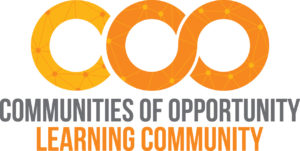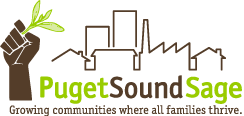Session 2: Building Power through Community Organizing
Learning Objectives
- Develop a shared definition of Community Organizing and explore how Community Organizing drives Community Stewardship models.
- Deepen our understanding of how to apply Community Organizing to shift relationships of power and improve material conditions for our communities.
- Introduce skills around telling your story, building your base, & confronting the power structure.
PowerPoint Slides
Learning Activities
- Framing community organizing presentation
- Montgomery Bus Boycott case study
- Story of Self, Us, and Now: Originally adapted from the works of Marshall Ganz, Harvard University, this is a public narrative and organizing tool.
- Basics of Base Building presentation and discussion
- Presentation of CREST base building power map
- Anatomy of a 1:1: Presentation, practice, and debrief
- The 1:1 Meeting: Handout on page 16 of Organizing: People, Power, Change, a handbook adapted from the work of Dr. Marshall Ganze and resources from the Leading Change Network and New Organizing Institute: Organizers Handbook
- 1:1 Role Play
- Confronting and Shifting Power presentation and small group discussions with scenarios
- Union Crossing Case Study and Questions - A case study, taking place in a historically redlined neighborhood of Union Crossing, outlines tension between a developer attempting to build luxury housing and a community-based organization seeking to put the property back in the hands of the community.
- Community Stewardship of Land Definition and discussion
- Puget Sound Sage developed a definition for community stewardship of land with five corresponding principles. This definition was compiled from ideas from organizations such as Right to the City and Urban Habitat.
Other Resources
- Community Organizing Term Sheet
- The Science of Turnout - How to make a plan to mobilize for actions, events, etc.
- Campaign Matching Game - Definitions for different elements of an organizing campaign.
- Stages of a Campaign
- Campaign Strategy Chart - Mapping out elements of a campaign.
- Organizer’s Handbook: People, Power, Change- Organizing 101 adapted from the work of Dr. Marshall Ganz of Harvard University and resources from the Leading Change Network and the New Organizing Institute.

TraeAnna Holiday, CREST cohort member from Africatown Seattle:
"I am so honored to be a part of what Puget Sound Sage is doing in this city. They brought together 20 organizations who may not have known each other, and together we are taking progressive models that are happening across the nation to reform and develop our spaces, have ownership in our spaces, create and rebuild our communities, and reclaim what has been taken from us. I represent Africatown Seattle, and if you know of what the Central District has gone through - it has suffered a great deal of gentrification, inequity and displacement. Africatown is working hard on the ground to develop buildings that are bringing our communities back.
For me, this is very personal. My family was displaced in 2003 and my parents had to buy a home in Federal Way. I have never known of Federal Way before. I grew up in the Central area, and it was all I knew for my whole life. It was so heartbreaking to my mother for us to have to move. We are one family, but displacement has affected so many more. This is why I’m so excited to be a part of this cohort. With the work of Puget Sound Sage, I am learning more on how to do this in a progressive way, ensure that we keep affordability for our communities and for our people, and to come back to spaces that we grew up in that we know and love.”
